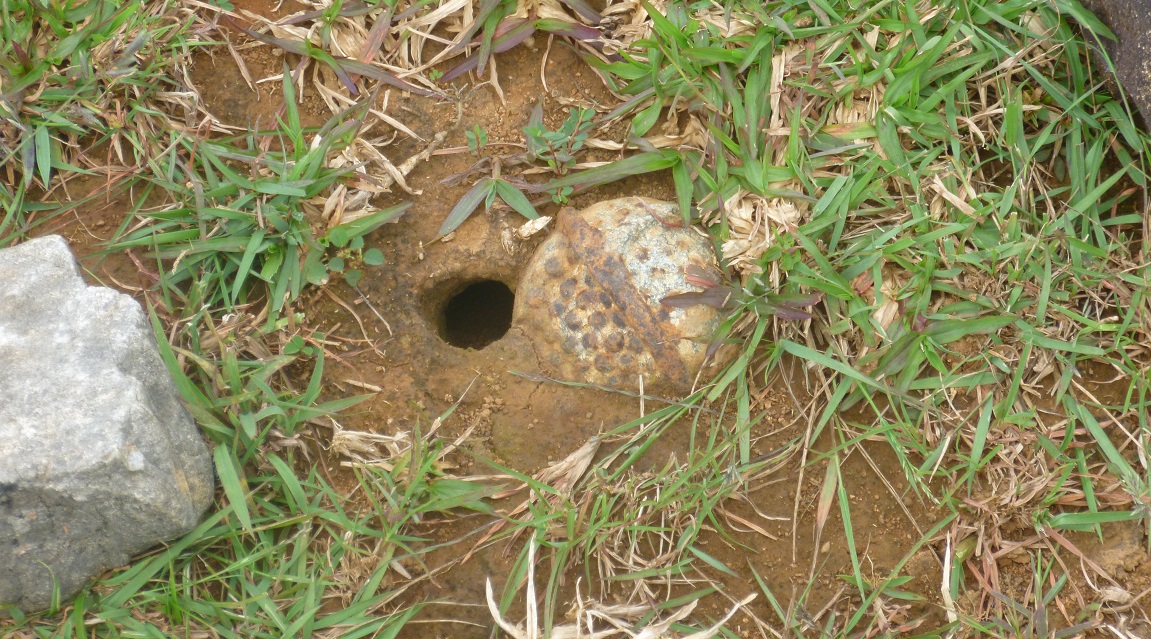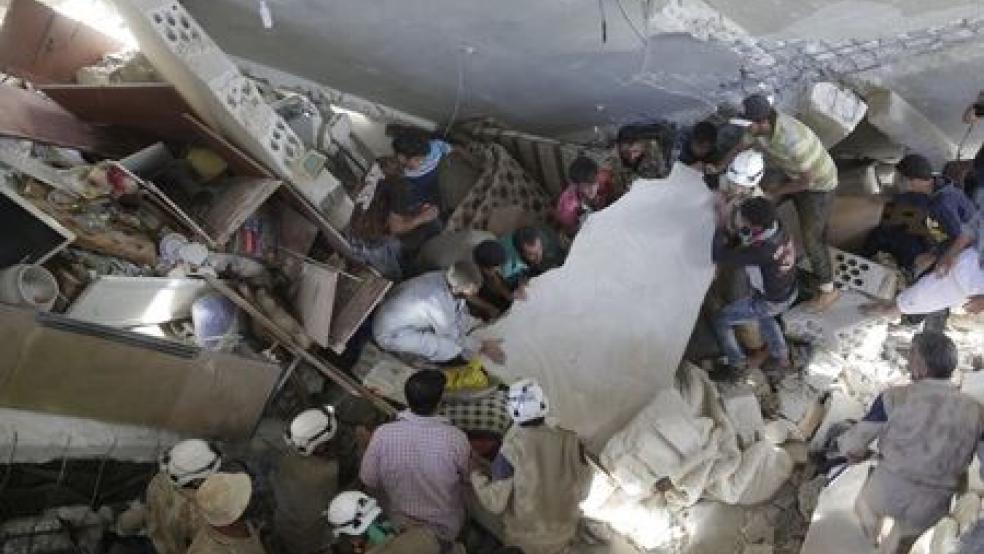Days after the first reports that Russian forces fighting in Syria were using cluster bombs – a type of weapon banned by many countries around the world – the New York-based Human Rights Watch reported that it had obtained evidence that a new, advanced form of cluster weapon, manufactured in Russia, is being used against Syrian rebels.
Cluster bombs, or cluster munitions, are typically made up of a shell containing smaller “bomblets”– sometimes hundreds or more. The smaller bombs disperse over a wide area when the shell releases them, but in practice, many don’t explode immediately. They can remain dangerous for years, and have caused an untold number of civilian deaths and injuries even years after the conflict in which they were used has ended.
Related: Obama Abandons $500 Million Program to Train Syrian Rebels
According to Human Rights Watch, the group has received evidence of both air-dropped and ground-launched cluster munitions being used in Syria, including most recently bombs containing SPBE sensor-fused sub-munitions, a variety meant to be used against armored vehicles. The bomblets in the device fire “an explosively formed slug of molten metal” downward at their targets.
“It’s disturbing that yet another type of cluster munition is being used in Syria given the harm they cause to civilians for years to come,” said Nadim Houry, deputy Middle East director at Human Rights Watch. “Neither Russia nor Syria should use cluster munitions and both should join the international ban without delay.”

"BLU-26 cluster sub-munition" by Seabifar G
The Human Rights Watch report did not attempt to determine whether Russian forces operating in Syria had used the weapons or whether they had simply been provided to Syrian forces by Russia.
Russian involvement in Syria has come under considerable U.S. criticism in the past two weeks, but the White House is unlikely to have any public comment on the use of cluster weapons in Syria, because the United States itself is one of the countries that has refused to sign a ban on such weapons.
Related: Putin’s Missiles Take Out Terrorist Iranian Cows
The Human Rights Watch report on cluster bombs in Syria comes as Russia is claiming considerable success in what it describes as a fight against the terror group ISIS, but which international observers say has actually been bomb and missile attacks focused on different rebel groups that are opposed to the government led by dictator Bashar al-Assad.
Over the weekend, Russian President Vladimir Putin contradicted earlier statements by senior military officials who had said that Russian ground troops, characterized as “volunteers” might participate in the fighting.
“Whatever happens, we’re not going to do this, and our Syrian friends are well aware of it,” he said in an interview on Russian television.
As has been his habit, Putin also took a shot at Western powers, suggesting that Russian involvement in Syria, seen by many in the West as surprising, had come with warning.
Related: Trump Gets an Endorsement from Putin’s Crimean Crony
“We advised beforehand our American partners and many other partners, particularly those in the region, about our intentions and our plans,” Putin said in the same interview.
Russia, he added, was “never ever” warned about similar operations by Western countries.
“Yet we did so. With good will, on considerations of practicability and to show our openness for cooperative work,” Putin said. “I want to stress once again that we are acting in full compliance with international law, and at the request of the official authorities of Syria
Putin’s forces are in Russia at the request of Assad, meaning that his claim is correct, if one views the Assad regime as legitimate – an increasingly fraught question in the region.





